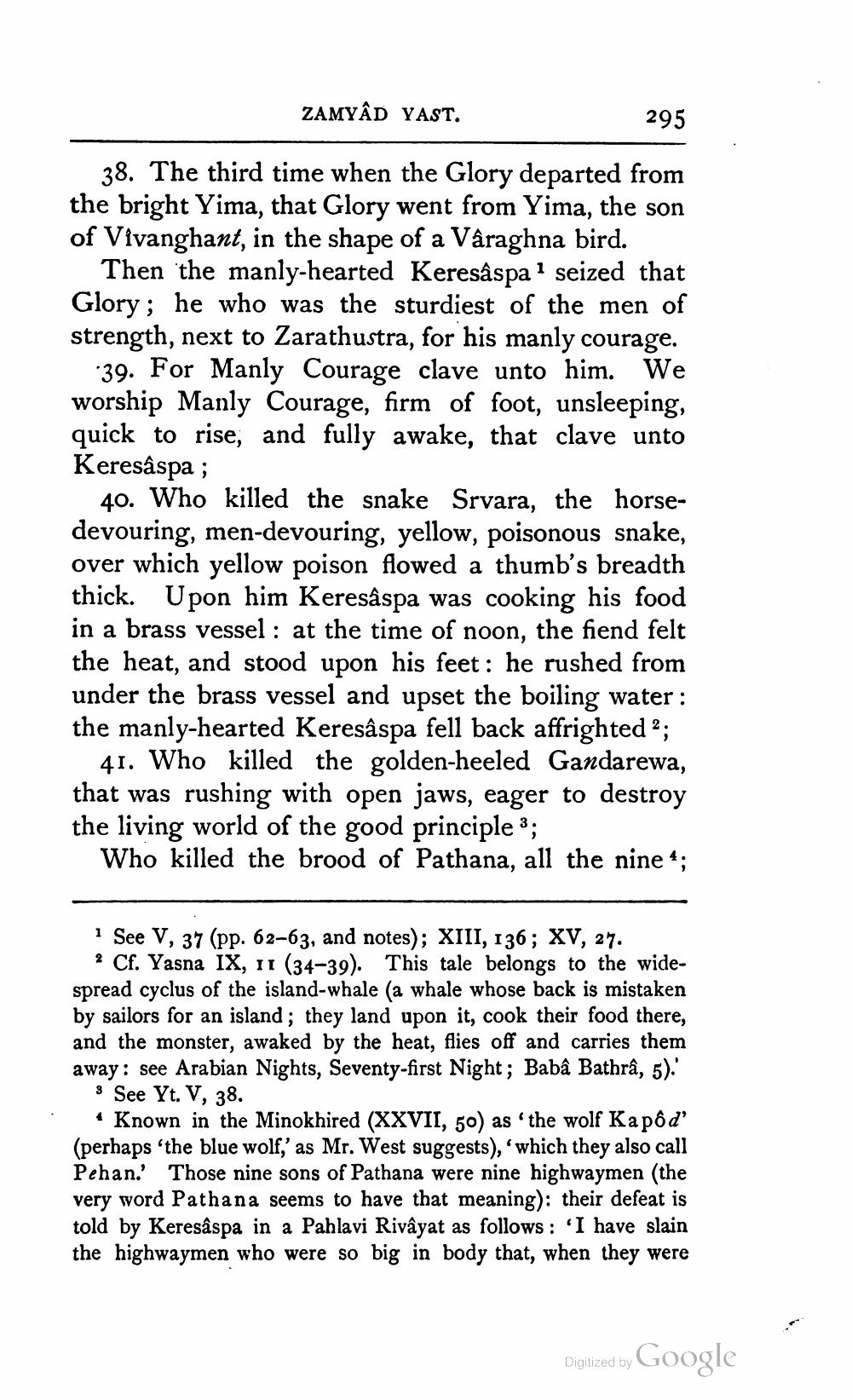________________
ZAMYÂD YAST.
295
38. The third time when the Glory departed from the bright Yima, that Glory went from Yima, the son of Vivanghant, in the shape of a Vâraghna bird.
Then the manly-hearted Keresâspa 1 seized that Glory; he who was the sturdiest of the men of strength, next to Zarathustra, for his manly courage.
-39. For Manly Courage clave unto him. We worship Manly Courage, firm of foot, unsleeping, quick to rise, and fully awake, that clave unto Keresâspa;
40. Who killed the snake Srvara, the horsedevouring, men-devouring, yellow, poisonous snake, over which yellow poison flowed a thumb's breadth thick. Upon him Keresâspa was cooking his food in a brass vessel : at the time of noon, the fiend felt the heat, and stood upon his feet: he rushed from under the brass vessel and upset the boiling water : the manly-hearted Keresâspa fell back affrighted 2;
41. Who killed the golden-heeled Gandarewa, that was rushing with open jaws, eager to destroy the living world of the good principle 3;
Who killed the brood of Pathana, all the nine 4;
1 See V, 37 (pp. 62-63, and notes); XIII, 136; XV, 27.
? Cf. Yasna IX, 11 (34-39). This tale belongs to the widespread cyclus of the island-whale (a whale whose back is mistaken by sailors for an island; they land upon it, cook their food there, and the monster, awaked by the heat, flies off and carries them away: see Arabian Nights, Seventy-first Night; Babâ Bathrâ, 5).'
s See Yt. V, 38.
* Known in the Minokhired (XXVII, 50) as 'the wolf Kapô d' (perhaps the blue wolf,' as Mr. West suggests), which they also call Pehan.' Those nine sons of Pathana were nine highwaymen (the very word Pathana seems to have that meaning): their defeat is told by Keresâspa in a Pahlavi Rivậyat as follows: 'I have slain the highwaymen who were so big in body that, when they were
Digitized by Google




